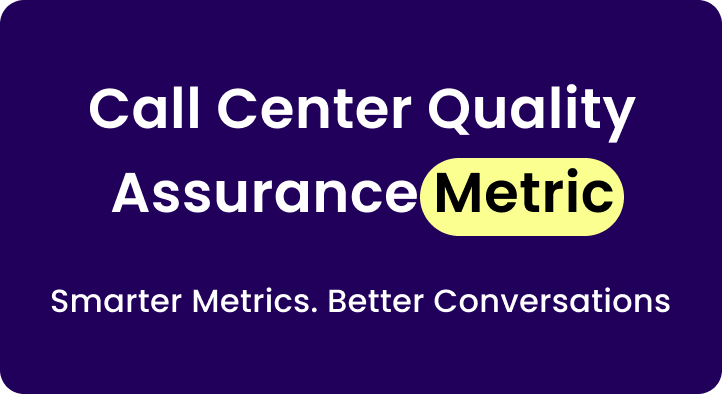AI-driven call analytics can help support teams understand customer behavior, identify service gaps, and improve how agents handle conversations.
Here’s how it makes a difference in real-day-to-day operations.
1. Find common customer issues faster
When teams review only a few random calls manually, it’s hard to spot recurring problems.
AI-based tools analyze every call transcript to detect keywords, complaints, or service blockers.
This helps managers:
- Identify product or policy issues early
- Spot repeated frustrations
- Fix root causes, not just symptoms
Instead of guessing what frustrates customers, teams can respond based on actual patterns.
2. Give agents better feedback
Call analytics tools break down conversations by tone, talk ratio, interruptions, and resolution quality.
This gives supervisors more to work with than just “listen to this call.”
They can now coach agents based on:
- Talk time vs. listen time
- Escalation triggers
- Missed opportunities for empathy
- Gaps in knowledge
Coaching becomes specific, not general.
3. Understand what makes top agents successful
Not all agents perform the same – but what makes one agent better than others isn’t always obvious.
Call analytics tools highlight traits and behaviors from top performers.
That includes how they:
- Greet customers
- Keep control of the conversation
- Stay calm under pressure
- Use clear language to explain solutions
Managers can use these insights to train the rest of the team with real examples, not assumptions.
4. Improve quality assurance without more workload
Traditional QA teams can’t listen to every call – it takes too much time.
With analytics running in the background, 100% of conversations can be reviewed automatically for key issues like:
- Non-compliance
- Missed greetings or disclaimers
- Negative sentiment
- Customer confusion
QA teams can now focus on the calls that actually need attention instead of sampling at random.
5. Detect customer frustration early
Analytics tools tag emotional tone and word patterns.
This helps teams spot unhappy customers early – even if they don’t say “I’m frustrated.”
Support leaders can:
- Flag conversations likely to lead to churn
- Proactively follow up with unhappy customers
- Identify which agents need help with de-escalation
This improves retention and helps agents handle tough calls better.
6. Get data you can act on
Instead of long reports with dozens of numbers, call analytics shows:
- What went wrong
- When it happened
- How often does it happen
- Who it happens with
That kind of clarity helps teams move fast – whether it’s fixing a policy or training an agent.
Summary
AI-driven call analytics improves customer interactions by:
- Revealing what’s not working
- Highlighting what top performers do well
- Giving agents and coaches specific feedback
- Making sure no important call gets missed
The result?
Fewer complaints, faster resolutions, and more consistent experiences across your team.



